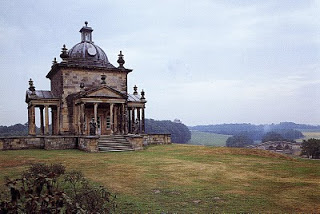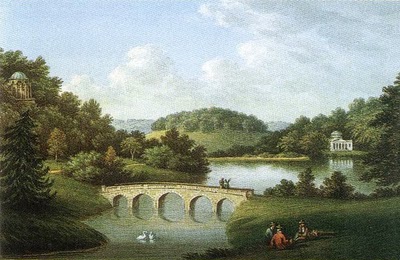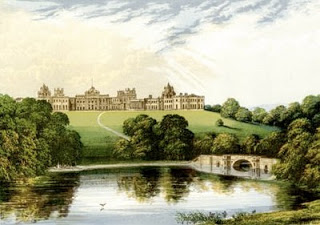In ancient times “genius loci” was the protective spirit of a place. In contemporary usage "genius loci" usually refers to a location's distinctive atmosphere, or a “spirit of place”, rather than necessarily a guardian spirit.
As a non-Brit (based in New York City) I tend to postulate the Chelsea Flower Show evolved from a long love affair with landscape, gardening and horticulture -- a cultural institution ingrained in a country's tradition.
The English landscape has been influenced by the many different groups of people that have inhabited the land. Medieval developments in England were typically centered around the residential environment.
During the 17th century ideas from Italy and France were incorporated into the English landscape on a small scale. With it, new ideas for special relationships and man’s relationship to his environment appeared. According to Geoffrey Jellicoe “….nature was no longer subservient to man, but a friendly and equal partner, irregularity rather than regularity was proclaimed the objective of landscape design.” The concept of Palladianism, real or fabricated ruins, themes, allegories, symbols were brought back to the English Landscape by their wealthy and educated owners, who idealized their country as the new Rome.
It was not until the early 18th century and the emergence of the English Landscape School that landscape design was applied on a large scale. It was also at this time that the artistic ideas of unity, harmony, contrast, balance and focus began to be explored in landscape design.
Alexander Pope (1688-1744) was an English poet, essayist and literary critic who had a considerable influence on the ideas behind the English landscape garden. In an essay on gardening in the Guardian (1713), he urged a return to the "amiable simplicity of unadorned nature" in place of the formal garden; and he proclaimed what was to become the cardinal rule for the English landscape style 'In all, let nature never be forgot.....Consult the "genius of the place".
Pope's verse laid the foundation for one of the most widely agreed principles of landscape architecture and design. This is the principle that landscape designs should always be adapted to the context in which they are located….
Alexander Pope tied visual experience to literal cultivation when observed that ‘‘all gardening is landscape-painting.’’ In Pope’s axiom, painting demonstrates the centrality of representation in conveying a genius loci, or ‘‘genius of place.’’ The attempt to create "natural" landscapes did require, however, an unprecedented amount of control over the land, and tended to create isolated islands of wild grandeur which could only be enjoyed by the well-trained eye. Designers such as Lancelot Brown and Humphrey Repton were hired by wealthy land barons to reshape their estates – according to Russell Page they "encouraged their wealthy clients to tear out their splendid formal gardens and replace them with his facile compositions of grass, tree clumps and rather shapeless pools and lakes". Still others claimed that the English Landscape School manipulated the land itself in order to separate the common man from the aristocrat, divide society both spatially and culturally.
The essential argument others raised is whether "genus loci" can be inherent in the place or can it be created?






